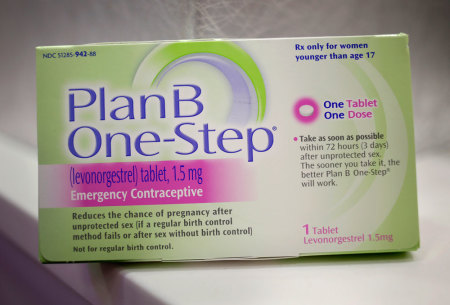Court Says Washington State Pharmacy Must Provide Emergency Contraceptives Despite Religious Objection

An appeals court panel has ruled unanimously against a family-owned pharmacy suing Washington for an exemption to the state's birth control mandate.
A three judge panel from the Ninth Circuit Court of Appeals ruled Thursday that Ralph's Thriftway must provide birth control items like the Plan B pill, which could be an abortifacient under certain circumstances, reversing a lower court decision.
Arguments were heard last November before Judges Susan P. Graber, Richard R. Clifton, and Mary H. Murguia. Graber authored the panel's opinion.
"After a bench trial, the district court held that the rules violate the Free Exercise and Equal Protection Clauses, and the court permanently enjoined enforcement of the rules," wrote Graber.
"Because we conclude that the rules are neutral and generally applicable and that the rules rationally further the State's interest in patient safety, we reverse."
In 2007, the Washington Pharmacy Quality Assurance Commission unanimously adopted two administrative rules, the "Pharmacist Responsibility Rule" and the "Delivery Rule."
The "Responsibility Rule" stated that a pharmacy could not refuse to provide "lawful prescriptions", but did provide a religious exemption for pharmacies and pharmacists.
By contrast the "Delivery Rule" lacks any exemption for religious or moral objections to providing "lawful prescriptions," like emergency contraceptives.
Ralph's Thriftway, along with two pharmacists, filed suit against the Commission in 2007 arguing that the rules violated their religious conscience.
U.S. District Judge Ronald Leighton oversaw the case, granting the plaintiffs a preliminary injunction from the new rules. The injunction was later overruled by the Ninth Circuit.
In February 2012 Leighton ruled in favor of Ralph's and the two pharmacists, arguing that the Commission's rules were "in practice unconstitutional."
"The Board of Pharmacy's 2007 rules are not neutral, and they are not generally applicable. They were designed instead to force religious objectors to dispense Plan B, and they sought to do so despite the fact that refusals to deliver for all sorts of secular reasons were permitted," wrote Leighton.
An appeal was made, during which time the Washington, DC-based Americans United for Separation of Church and State submitted a brief in favor of the Commission's rules.
"The Washington State regulatory scheme at issue strikes a careful, appropriate balance between the religious freedom of pharmacists and that of their patients. Individual pharmacists are given the right to decline to fill prescriptions if doing so would be contrary to their personal religious or moral beliefs," read the brief.
"The regulatory scheme thus prevents an individual pharmacist's religious beliefs from being foisted onto a patient who may hold quite different beliefs."
Ralph's Thriftway received legal help from the Washington, DC-based Becket Fund for Religious Liberty. The organization has overseen dozens of lawsuits against the federal government's "preventive services" mandate.
In a statement, Becket Fund Deputy General Counsel Luke Goodrich called the Ninth Circuit panel's decision "unfortunate."
"The government has no business punishing citizens solely because of their religious beliefs," stated Goodrich immediately following the ruling.
"The pharmacists in this case willingly refer patients to over 30 pharmacies that stock the morning-after pill within a five mile radius, and no patient has ever been denied timely access to any drug."





















